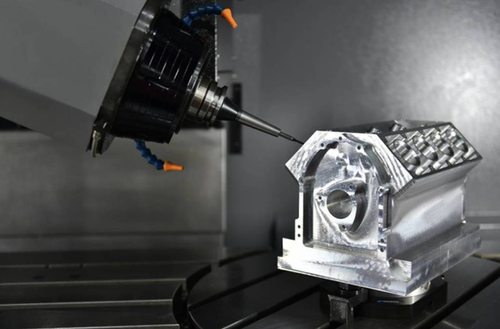Critical thinking is a vital skill that plays a fundamental role in our ability to analyse information, evaluate arguments, and make informed decisions. In today’s fast-paced and information-driven world, the ability to think critically has become increasingly important. Whether you are a student, a professional, or an individual navigating daily life, honing your critical thinking skills can empower you to navigate complexities, solve problems, and achieve success. In this article, we will explore the strategies and techniques that can help you enhance your critical thinking abilities and make well-informed decisions.
Understanding Critical Thinking
Before we delve into the strategies, let’s first understand what critical thinking entails. Critical thinking is the process of objectively analysing information, evaluating arguments and evidence, and forming logical and rational judgments. It involves questioning assumptions, examining underlying biases, and considering multiple perspectives. By engaging in critical thinking, you can go beyond surface-level understanding and develop a deeper comprehension of complex issues.
Developing Analytical Skills
One of the key components of critical thinking is developing strong analytical skills. Analytical thinking involves breaking down complex problems into smaller, manageable parts and examining them in detail. Here are some strategies to enhance your analytical skills:
- a) Identifying and Defining the Problem: Clearly define the problem or question at hand. This will help you focus your analysis and determine the most relevant information.
- b) Gathering and Evaluating Information: Collect relevant data and information from reliable sources. Evaluate the credibility and validity of the information to ensure its accuracy. We always love collecting data on Excel, so if you don’t know much about the program, make sure you invest in Excel Training.
- c) Recognising Patterns and Relationships: Look for patterns, connections, and relationships between different pieces of information. This can help you identify underlying trends or causes.
Evaluating Arguments and Evidence
In critical thinking, it is essential to evaluate arguments and evidence objectively. Here are some approaches to consider:
- a) Identifying Assumptions: Uncover the assumptions underlying an argument or claim. Assess whether these assumptions are reasonable and supported by evidence.
- b) Assessing the Quality of Evidence: Examine the quality, relevance, and reliability of the evidence presented. Consider the source, methodology, and potential biases that may affect the credibility of the evidence.
- c) Considering Counterarguments: Explore opposing viewpoints and counterarguments. This helps you develop a more comprehensive understanding of the issue and strengthens your own argument.
Enhancing Decision-Making
Critical thinking directly influences the quality of our decision-making. Here are some strategies to improve decision-making:
- a) Weighing Pros and Cons: Identify the potential benefits and drawbacks of each option. Consider the short-term and long-term implications of your decisions.
- b) Applying Logical Reasoning: Use deductive and inductive reasoning to evaluate different options. Analyse cause-and-effect relationships and logical connections.
- c) Considering Ethical and Moral Dimensions: Evaluate the ethical implications of your decisions. Consider the impact on various stakeholders and strive for morally responsible choices.
Practicing Reflection and Self-Awareness
Reflection and self-awareness play a crucial role in developing critical thinking skills. Here’s how you can cultivate these qualities:
- a) Self-Reflection: Regularly reflect on your own thinking processes and biases. Be open to challenging your own assumptions and beliefs.
- b) Seeking Feedback: Seek feedback from others to gain different perspectives. This helps you uncover blind spots and broaden your understanding.
- c) Continuous Learning: Engage in lifelong learning to expand your knowledge and develop a broader perspective. Explore new disciplines, read diverse opinions, and embrace intellectual curiosity.
The development of strong critical thinking skills is a lifelong endeavour that holds immense value in every aspect of our lives. It is not a destination to reach but a continuous journey that requires dedication and effort. By actively engaging in strategies such as honing our analytical skills, evaluating arguments and evidence, improving our decision-making abilities, and nurturing self-reflection and self-awareness, we can truly enhance our capacity to analyse information and make well-informed decisions. The significance of critical thinking goes beyond academic and professional realms. It has the power to shape our everyday lives, enabling us to navigate complexities, overcome challenges, and seize opportunities. Whether it’s solving problems at work, making important life decisions, or simply engaging in conversations with others, critical thinking empowers us to approach situations with clarity, objectivity, and sound judgment.
So, let us embrace critical thinking as a valuable tool that can truly transform our personal and professional development. Let us be open to questioning assumptions, exploring different perspectives, and seeking reliable evidence. Let us cultivate a mindset of continuous learning, curiosity, and self-reflection. By doing so, we can unleash our full potential, confidently face the complexities of the world, and make choices that align with our values and goals. Remember, critical thinking is not a solitary endeavour. It thrives in the company of diverse perspectives and collaborative environments. Engage in discussions, seek feedback from others, and be willing to challenge your own beliefs. Embrace the richness of different viewpoints and learn from the experiences and insights of others. Together, we can create a culture that celebrates critical thinking, fosters informed decision-making, and drives positive change in our personal and professional lives.
Embrace the challenges, relish the discoveries, and celebrate the growth that comes with it. As we navigate the complexities of the world, let us navigate with confidence, armed with the invaluable tool of critical thinking.



